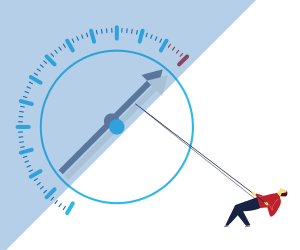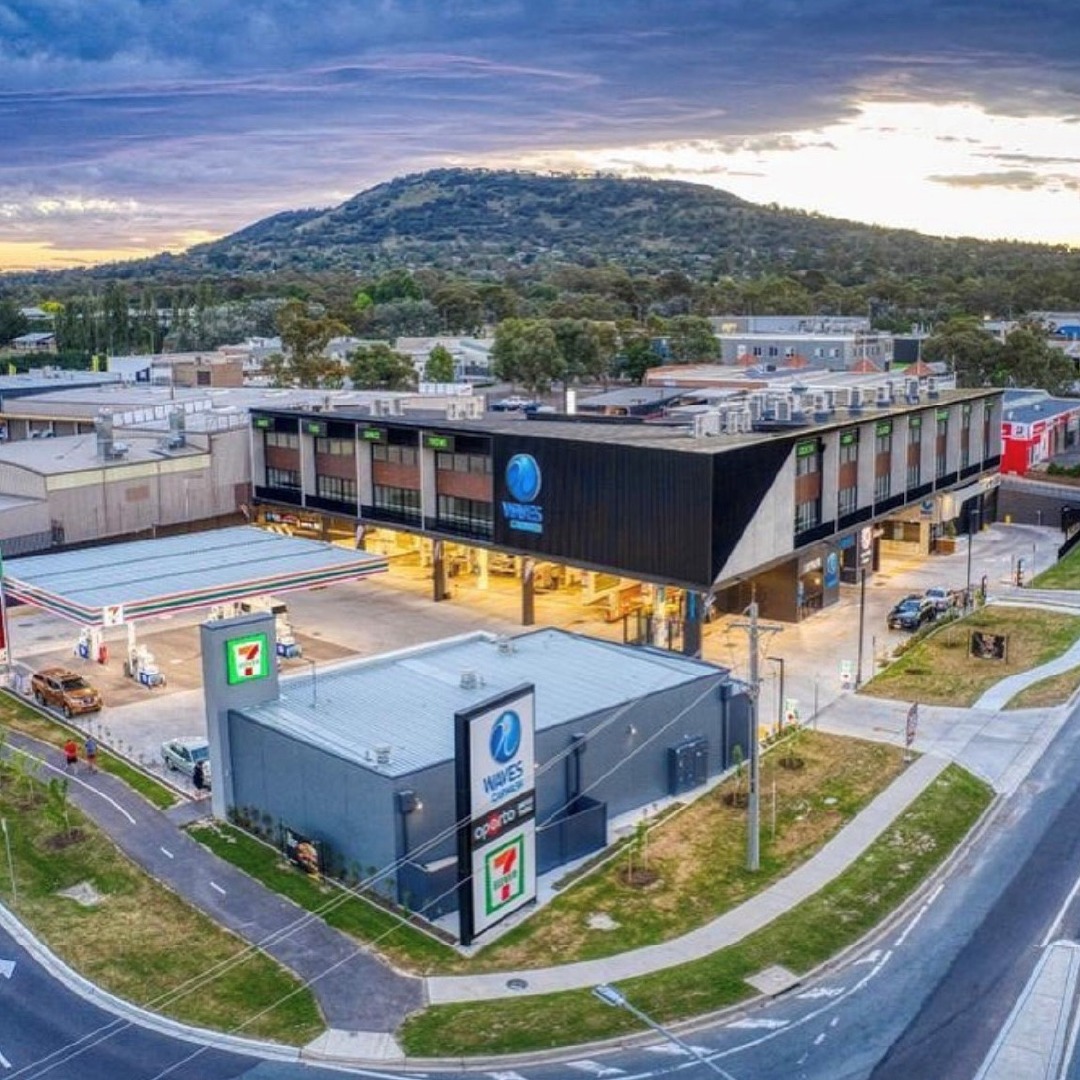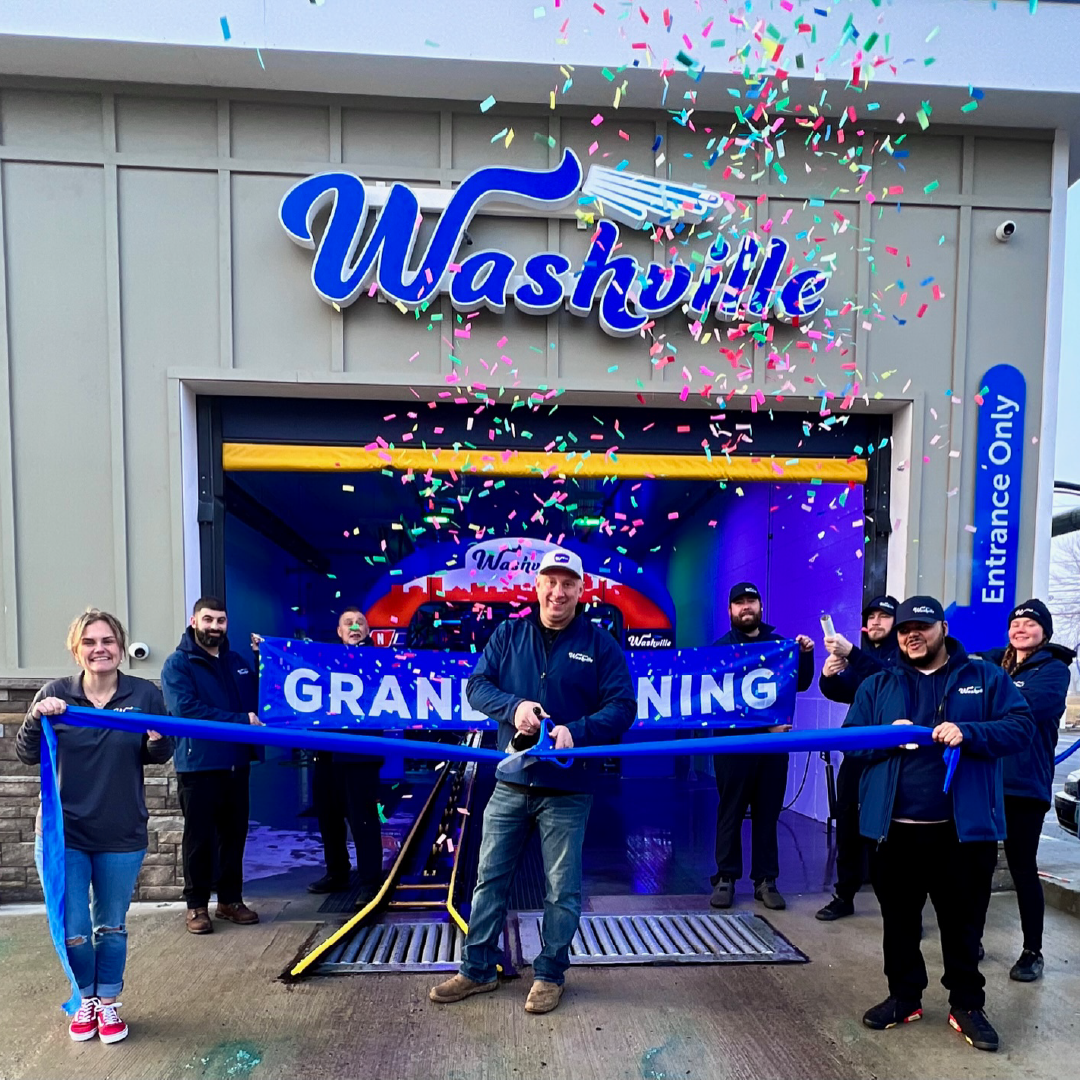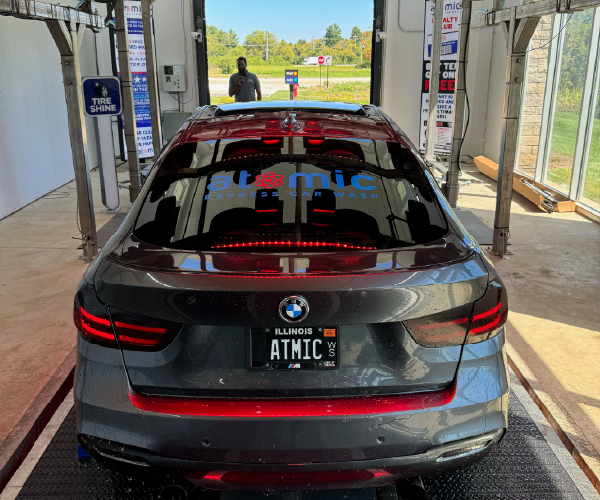
Full Speed Ahead
July 7, 2021
7 minute ReadBY SANDY SMITH
The struggles are there, for sure: shifting driver patterns, government-mandated shutdowns, product shortages. But where there are challenges, some are finding opportunities in rethinking the way the car wash industry can operate.
One thing is clear in this time of uncertainty: “Our industry is still really busy,” said Trent Clark, Architect, and Owner at A Plus Design Group. “Everybody is still growing, expanding and remodeling. Our office was slow for about a month. It’s game on again.”
That doesn’t mean that the future will look like the past. In the meantime, COVID-19 is making its presence felt on the car wash industry in a few key ways.
FUTURE DESIGN
A car wash’s ability to remain open as an essential service while other businesses were closed drove interest in the business opportunities, said Eric Hathaway, Chief Designer at car wash buildings and solutions company Modernwash. But, partly due to COVID-19, these new washes may look a little different than ones designed and built prior to the pandemic. One client has already moved his inbound office sales area to a walkup window, said Hathaway. That serves to limit the public’s access into the facility itself, which is going to reduce contact and cleaning inside the office for employees.
Hathaway also sees some interest in wider spaces between vacuum bays, for instance, or a move to a belt conveyor instead of a chain. “Different companies will promote that as, ‘You don’t have to have somebody there loading the car.’ There’s not a lot of interaction anyway, but the perception can make a difference.” As for the vacuums, Hathaway’s designs focus on width. “The wider the vacuum you can have, the better for convenience. Maybe you don’t need 30 vacuums, but 20, and you can make them a little wider to spread people out.”
Public restrooms may be required by the local regulations, but where they aren’t mandated, some are limiting restroom use to employees only. “With COVID, there will be more businesses not doing the public restrooms, which reduces the cleaning and maintenance,” Hathaway said.
Clark sees the potential for some customers moving away from personal services like detailing and interior work because they don’t necessarily want someone else in their vehicle. That has driven conversations about whether to build a full-service, flex or express facility, he said. “But people in the industry are smart enough to know that this is only a period of time that we’re dealing with. At some point, it’s going to turn around and people will want those services again.”
GOING TOUCHLESS
“Touchless” certainly has a new meaning when it comes to car washes. No longer is it about how the machine operates, but what surfaces consumers must encounter to complete the transaction and whether there is any employee interaction at the time of sale.
“We are seeing people waiver on the point of sale,” Clark said. “If you have a person there, you have contact.” Also, touchless doesn’t always mean the entire transaction is free of equipment contact. Sometimes, it is still necessary to touch the screen. “If you don’t have a person there, everyone is touching the same screen. How do you clean those surfaces?”
Clark said he has seen an increased interest in the touchless aspect when it comes to customer identification, though. Some car washes are exploring license plate readers at the fast pass lane, he said. “They’re not even putting up gates. If you’re a member, just drive through. That could be partly COVID-related, but the industry was heading there anyway.”
A SHIFT IN DEMAND
North of the U.S. border has been impacted too, where government-mandated shutdowns closed the interior service and eventually the express wash, said Matt Scott, Operations and Business Manager at Zenetec in Ontario. “We were shut down for about a month, and through that period, we lost 25% of our members in the unlimited plan” he said. It took the company from May until October to gain back those memberships lost during the shutdown.
Everything about his operation has changed in the months since. “When a guest comes in for our flex service, we start with screening questions,” Scott said. “We provide a sanitized bin for their personalized belongings. We spray a disinfectant inside the vehicle for the safety of our employees. We’ve reduced seating and moved some seating outside, which will change in winter.”
Sean McBride, Vice President of Car Wash for Giant Eagle’s WetGo brand, had seen the volume drop significantly in the beginning before building back up throughout the summer and early fall. The one area that hasn’t snapped back is the early morning traffic.
“We just can’t seem to get back to previous levels,” he said. Even more confusing, the same drop isn’t apparent at the attached convenience store, GetGo — at least not at the gas pumps. “Overall gas volume is down like the rest of the country, but surprisingly transactions aren’t off as much. We’ve seen a relation with the car wash and the c-stores’ inside food and fountain beverage sales continuing to stay sluggish, especially during the old morning rush,” McBride said. “Hard to figure it out. You’re pumping some gas, why aren’t you getting a car wash or grabbing a hot coffee?”
WetGo ran a free upgrade package in early summer. “Building off that success we are now beginning to offer an early-riser discount. If we get those wet tracks in the parking lot earlier, we’ll wash more cars throughout the day,” McBride said. “I’m hoping that we’re encouraging people to get used to the early morning.”
What is also working is building a subscription program, which launched a week before COVID-19 was declared a pandemic. WetGo was still able to land nearly 5,000 new subscribers, though it was at a highly discounted enrollment rate and a ton of marketing, McBride said. “Turnover has been better than expected and contactless payment is more popular than ever. We leaned into that heavily.”
The challenge of determining patterns and pricing also has impacted Breeze Thru car wash in Fort Collins, Colorado.
“We’ve seen a decrease in retail business, but our club usage is up,” said Wade Keith, brand manager. “We’ve put a lot of messaging out there to encourage people to wash more.”
Because his wash did not shutter, they didn’t lose a lot of members. But with more people working from home and a number of folks leaving Colorado, it’s hard to make future predictions, he said.
Keith’s community also was challenged by some truly wacky weather in the fall. “One day it was raining ash from the wildfires and the next day we had six-foot snowdrifts on the pass. It’s been a really weird year.”
He’s responded by upping the positive vibes on social media and doing a lot of messaging that is community-focused. Part of their brand is to give back to the community, so they’ve been promoting fundraisers at their locations, too. “Customers engage with it heavily, so there is a lot of organic reach,” Keith said. “Besides, on social these days, there’s not a lot of positivity and people love seeing that. Before too long, we’ll start promoting our offers and hopefully we’ll be able to sell more because of the positivity that we’ve been putting out.”
For his part, Clark has clients now exploring a 24/7 model. He said he’s seen some car washes go this route. “It could be with people working out of their homes, they want to capture them at different times,” he said.
PRODUCT SHORTAGES
When supplies became difficult to procure, some companies increased inventory. At Zenetec, it was more challenging as the U.S.-Canada border was potentially going to close. “We probably doubled our inventory,” Scott said. “It turned out there was no real issue. Now, we’re keeping about 25% more than before. It showed us the comforts of having additional inventory, but obviously, there’s a cost to that.”
Keith also added dash wipes because they didn’t know when they’d be able to get them, again. And he’s stockpiled face masks and other items in case there’s another issue overseas.
“The way that our business has bounced back, whether retail, wash club or flex service, it speaks to the strength of our industry,” Scott said. “Keeping a clean car continues to be in high demand; it’s comforting how well that this industry has bounced back.”







